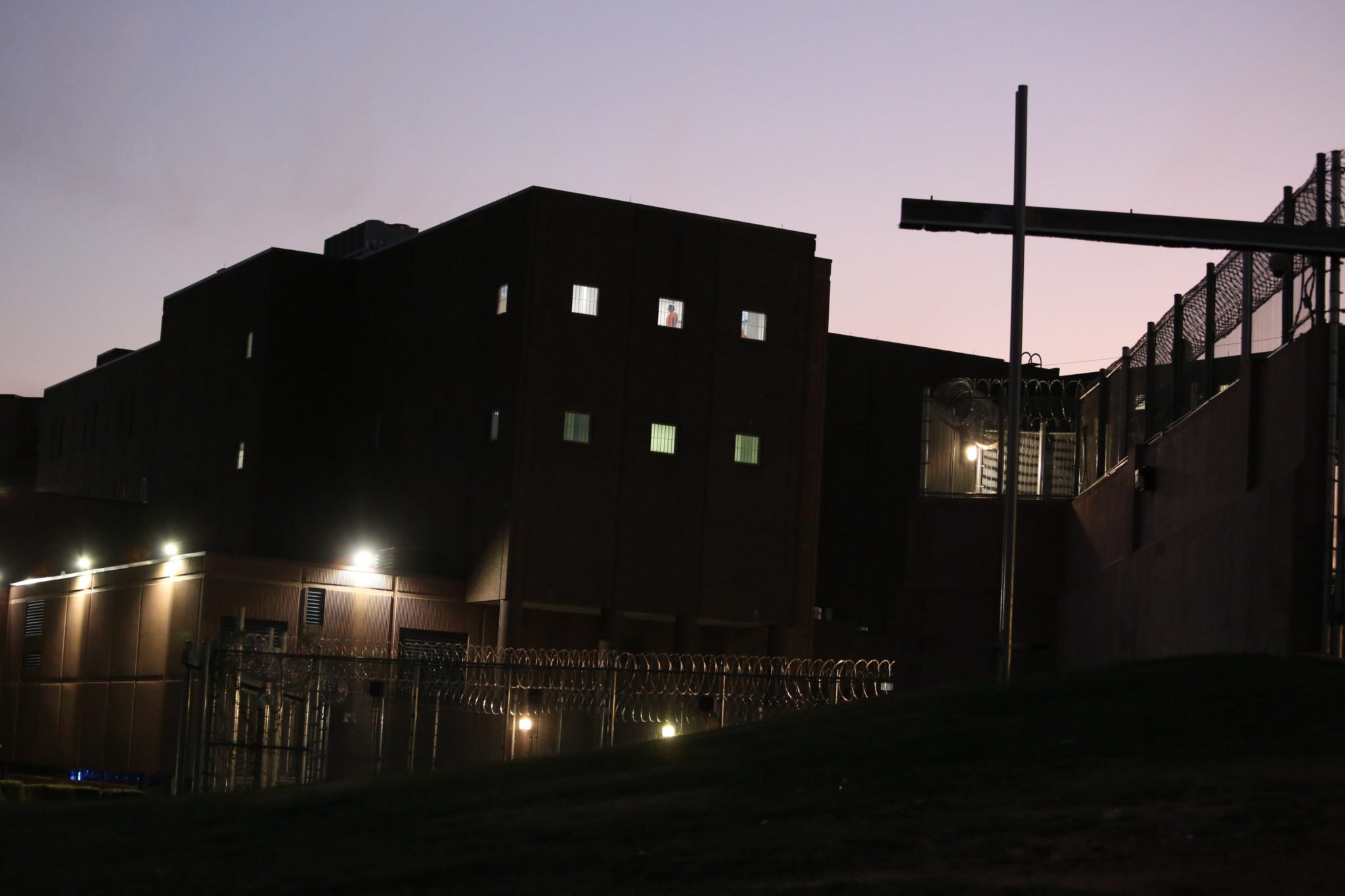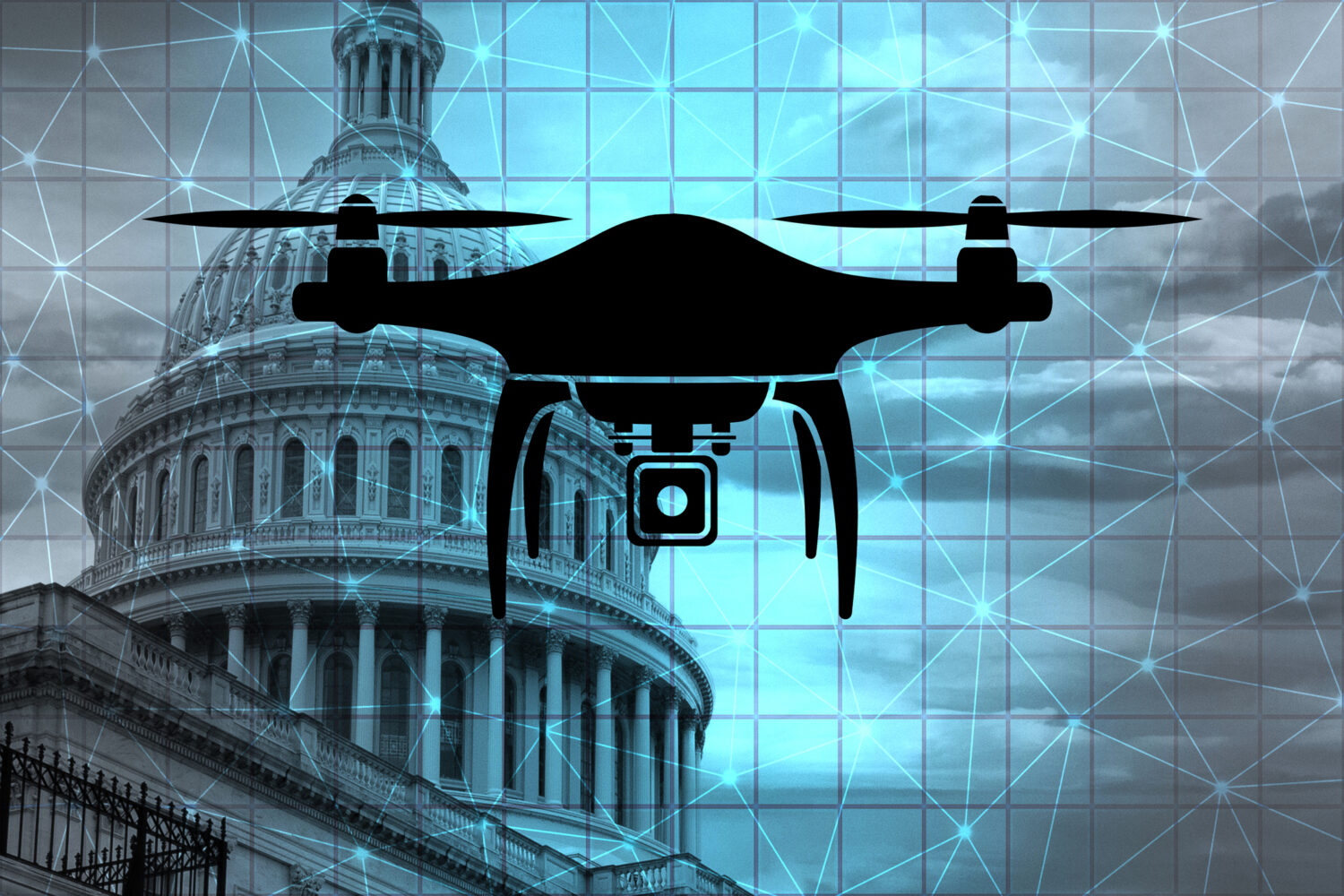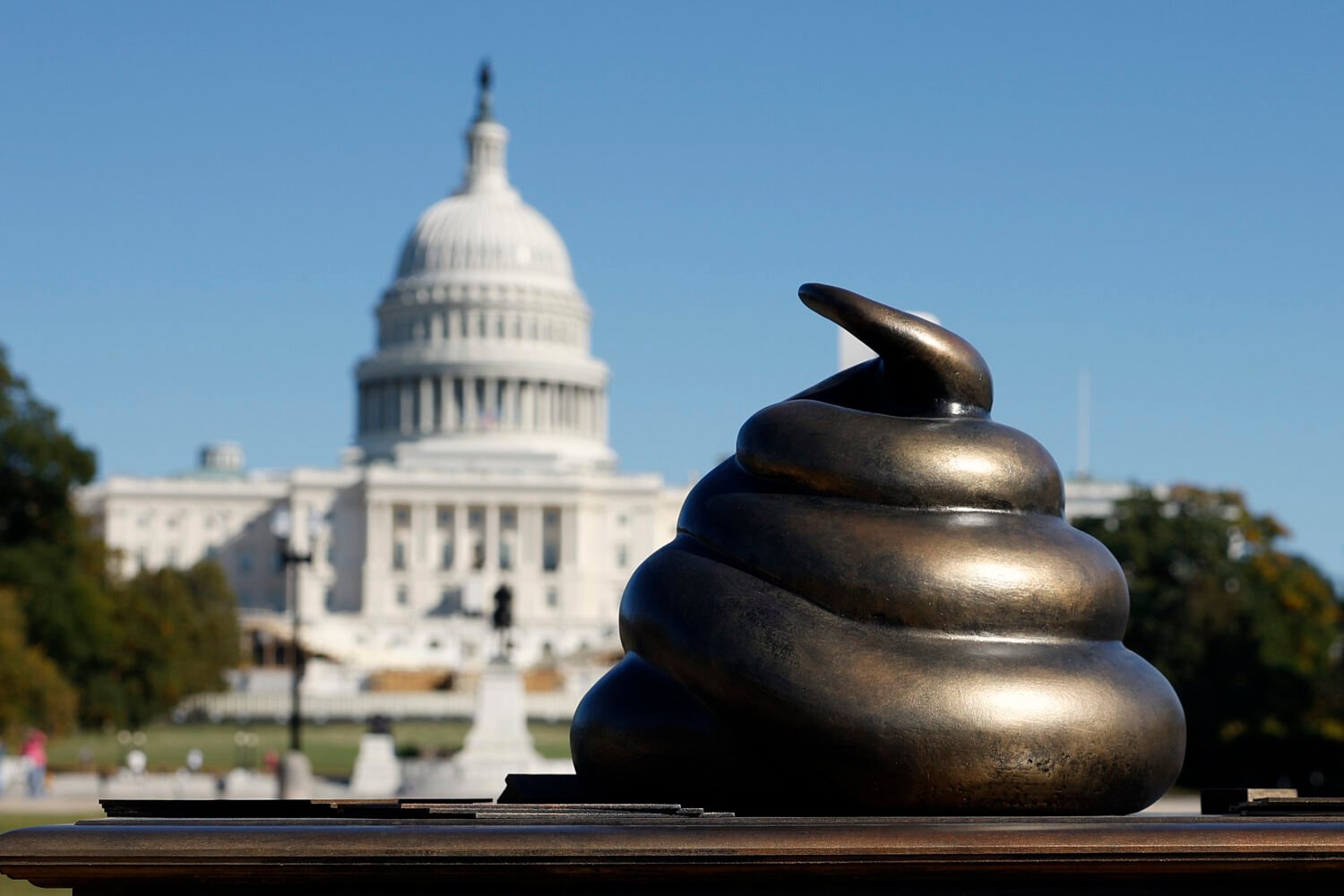There’s a strong chance Jacob Chansley is who you think of when you recall the January 6 riot. Better known as the “QAnon Shaman,” Chansley strode into the Capitol shirtless on that overcast, wintry day, showing off a torso covered in tats. His face was painted with three finely rendered red-white-and-blue triangles. The remains of several coyotes swaddled his head, while bison horns jutted from either side of his headdress. He carried a bullhorn in his gloved hands as well as, depending on your perspective, a flagpole with a “misaligned, loose-fitting finial” atop it (per Chansley’s erstwhile defense attorney, Albert Watkins) or a “six-foot spear” (the government’s point of view).
Chansley stood in the Senate balcony while other Trump fans rifled through senators’ desks. He pounded his pole/spear on the floor and chanted wordlessly in a loud baritone. Later, as he waltzed into the chamber downstairs, he switched to English.
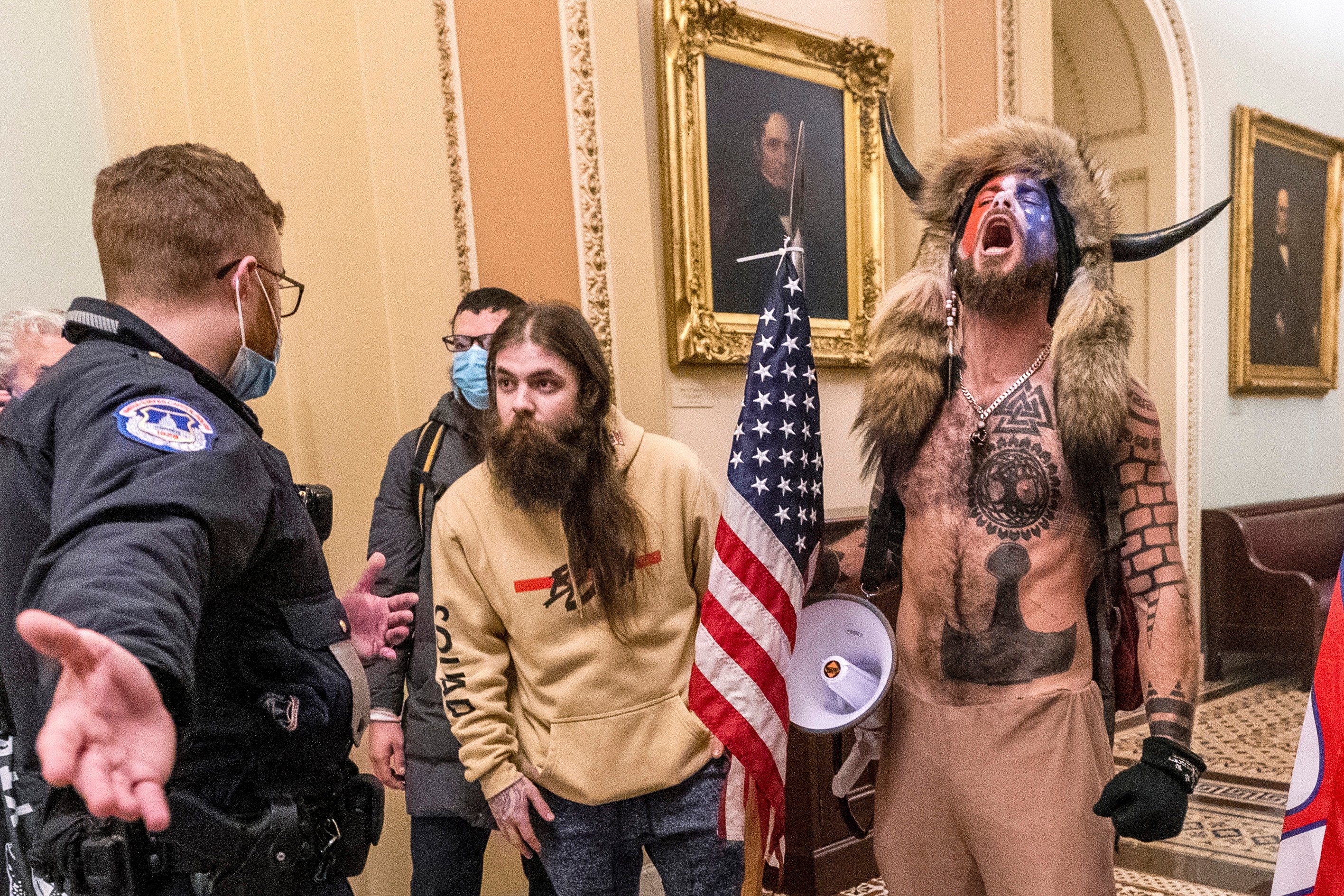
“F—in’ A, man,” he said by way of introducing himself to his fellow insurgents, in video captured by a New Yorker reporter. “Glad to see you guys, you’re f—ing patriots.” He installed himself on the dais. “I’m gonna take a seat in this f—ing chair, because Mike Pence is a traitor.” He asked a fellow rioter to snap his picture. Before leaving, he thanked God for the opportunity to send a message to “the tyrants, the communists, and the globalists” and scribbled a note on some papers meant for the Vice President: “ITS ONLY A MATTER OF TIME JUSTICE IS COMING!”
Come February, Chansley had apologized for taking part in the riot. By that point, he was among dozens of other January 6 defendants behind bars in the nation’s capital. Many were accused of meting shocking violence on the police, and lots of them had long histories of violent crimes. Chansley met neither criterion, but, as Watkins says, “Jake is, for better or for worse, the face of the insurrection.” Anyway, at that point the QAnon Shaman had bigger problems than being locked up with a bunch of purportedly violent would-be putschists: The DC Jail wouldn’t serve him organic food.
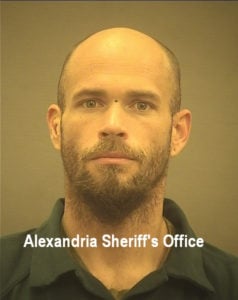
Chansley, see, has a belief in shamanism. And the shamanic diet—well, the exact strictures on the shamanic diet are still a bit fuzzy. Watkins told the court he couldn’t find “a reliable shaman adviser” to explain why wild-caught canned tuna is integral to the spiritual practice, but argued that the Shaman’s nine-day hunger strike was proof his faith was sincere. If DC couldn’t deliver food that comported with Chansley’s faith, he should be moved to a jail that could.
The prosecutor also couldn’t find documentation on shamanic culinary traditions, which, the feds said, meant Chansley should stay put. This wasn’t Judaism or Islam. If the strictures couldn’t even be established, how was the jail offending anyone’s religion?
But as it happened, an Arizona jail that previously had held Chansley served him pesticide-free fare. That was good enough for Judge Royce Lamberth. Chansley was relocated to Alexandria’s jail, which, Watkins told me, has done a “splendid job” in the kitchen for the Shaman.
A lack of sustainably farmed produce might sound like a rather precious complaint coming from a fur-clad autodidact who tried to overturn an election in the world’s oldest continuous democracy. But Chansley isn’t exactly a lone coyote among the MAGAs in griping about the DC Jail. Which might make you wonder: What exactly did they think it would be like?
The DC Jail is even more segregated than the city it serves. Just 3 percent of the inmates, on average, are white; 87 percent are Black. What happens inside when you lock up dozens of overwhelmingly white men arrested as part of a radical-right insurrection? The jail’s overseers decided they didn’t want to find out. The Sixers—as they’re known to their faithful—were confined to a medium-security annex, away from other prisoners. The brass call the block C2B, or Charlie Two Bravo. Its 40 or so residents call it the Patriots’ Pod.
“We work as a team in here,” says Brandon Fellows, a 27-year-old Sixer from central New York. “We pray together, we sing together.”
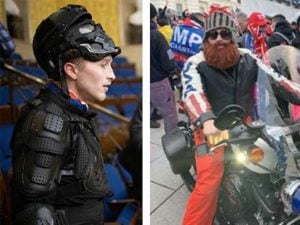
Fellows is the guy who climbed through a broken Capitol window and admitted to taking a hit off a doobie in Senator Jeff Merkeley’s office. He got to the pod in August. Right around Thanksgiving, I began trading calls with him and another inmate, Nathan DeGrave, to hear how life on the wing was going. “It’s more so a democracy than, say, you know, a monarch,” says DeGrave, a 32-year-old Las Vegas resident accused of encouraging people to “take everything” after he forced his way past officers into the Senate chamber. (Both Fellows and DeGrave have pleaded not guilty.) “We kind of all listen to each other and get input from each other. So I would have to say that there’s no specific or definite leaders in this pod.”
There may be no king mackerel in the fishbowl, but facets of life inside it sound eerily familiar to the alternate universe that ultra-right-wingers occupied on the outside.
Most of a Sixer’s existence goes down in isolation—the cells on Charlie Two Bravo are singles. Each day, they get a five-and-a-half-hour window of “rec,” or time outside the cell. One day it’s from 9 am to 2:30 pm, then they wait 25 and a half hours for the next day’s rec, starting at 4. Sixers on that rotation get to take part in a cherished ritual: singing the national anthem in unison at 9 pm. When they get to the lyric “That our flag was,” they shout the last two words, “STILL THERE!”
Basketball is big—they play on indoor courts now that winter’s here—as is venting about being political prisoners in a totally un-American American gulag (their words). They discuss their cases, interesting facts they’ve discovered in law books (“At times it sounds like a law firm in here,” DeGrave says), and the sentences other defendants have received. They know they’re celebrities among a certain set of folks on the outside: Most have crowd-funding accounts set up to help them buy stuff from the commissary or to pay legal bills. DeGrave, whose Patriot’s Pod nickname is Nate Dogg and whose Facebook bio identified him as a “Life & Success Hacker,” has amassed more than $111,537 in his account.
“We have, like, fans,” says Fellows. “People all around the country send us mail, and they’ve been even sending in food donations.”
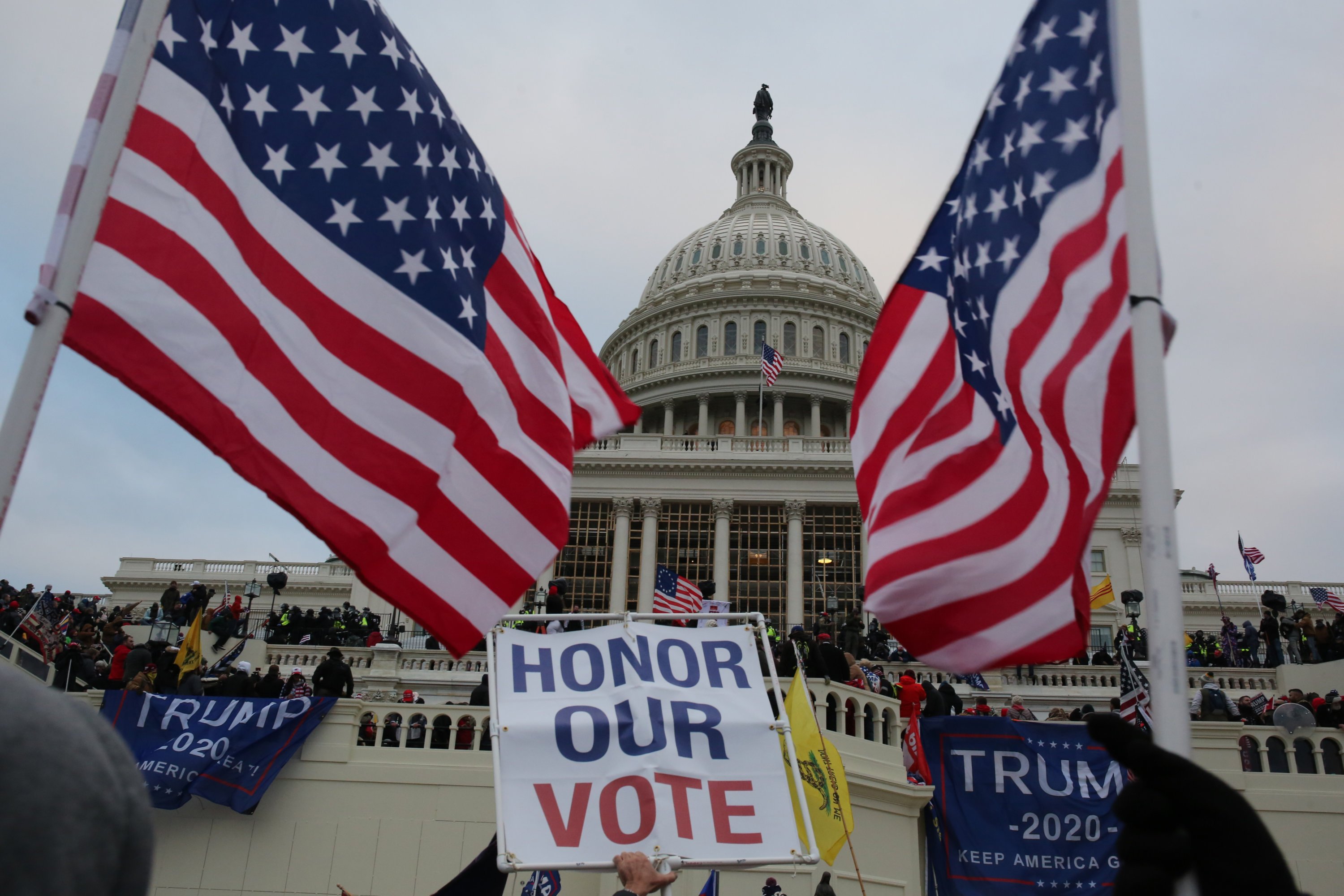
Just as some of the Sixers were shocked to learn that the election couldn’t simply be overturned, some of the detainees seem surprised that jail food is bad. “Definitely a lack of fruit and vegetables,” Fellows says. “Like, it’s on MyPlate.gov: We’re supposed to get a daily serving of fruit and vegetables and actual good greens.” There’s a lot of white bread, and almost always bologna and cheese for dinner. “On Thanksgiving,” sniffs DeGrave, “we got turkey bologna.”
Sixers who want iPad time and have funds to spend get to use tablets to read the news. Everyone is allowed to watch TV, and they followed the Virginia governor’s race like college-football fans. But they don’t tune the thing only to conservative outlets. The local DC news is a go-to, plus Storage Wars, Hardcore Pawn, and, whenever possible, The Bachelor, The Bachelorette, or The Bachelor in Paradise. Says DeGrave: “All the Bachelors.”
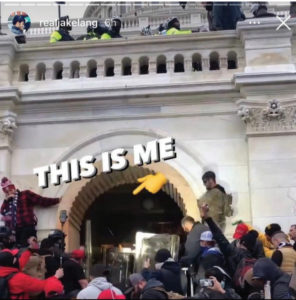
On Sundays, everyone looks forward to “The Hope-ium Den.” The Hope-ium Den? “Where we all get together and put on a show,” DeGrave says. “There’s comedy shows and there’s skits, and some people get up and sing or share lyrics or read poetry.” Sometimes the songs poke gentle fun at fellow inmates. Emcee Jeff McKellop (accused of throwing a flagpole at a cop “similar in fashion to throwing a spear”; he has pleaded not guilty) hosts, using a mop handle as a microphone. Edward Jacob Lang—accused of hitting cops with a baseball bat—is a regular performer. (Lang was the guy who posted a January 6 photo of a group overwhelming police, which he finger-emoji-captioned, “THIS IS ME”; he has also pleaded not guilty.)
Grooming is . . . problematic. No vax? No entry at the barbershop. One option is to go for the cue-ball look: Fellows and DeGrave say the Sixers have recently been given hair-removal cream, either Nair or Magic Cream Shave, a product that’s supposed to provide depilation without razor bumps. “You have to lather it on and then wait about, like, five minutes,” Fellows says, “and then you’ve got to rip it out. So that’s pretty painful. And leaves, like, a sunburn-like burn on your face or head for, like, a day or two.” One attorney told me that the Sixers get access to fingernail clippers every few weeks. Some use them to cut their hair.
Ordinarily, a chunk of the Sixers’ time off the block might be spent in the prison church. But the jail won’t let unvaxed prisoners congregate in the chapel. So the men have organized religion on their own, worshipping together with Good Books mailed in by a donor.
They’ve also concocted their own internal justice system, for times when a beef between MAGA brethren should bubble up. It’s biblically based, says Fellows, and encourages people to hash out issues between themselves first, with escalating interventions by ever-larger groups of negotiators if talks break down. “We don’t fight it out or anything,” he explains. “We’ll go in a room and we’ll talk it out. And sometimes we’ll vote on the issue.”
Not everyone has taken to the jailhouse community the MAGAs have built. According to the lawyer for Thomas Sibick—accused of attacking DC police officer Michael Fanone, then burying the cop’s badge in his backyard—his client had to interrupt a lawyer call to go sing the national anthem, worried he’d be ostracized if he didn’t join in. (Sibick has pleaded not guilty.) The pod was “cult-like,” the lawyer said. He managed to get Sibick released and placed on home confinement in Buffalo instead.
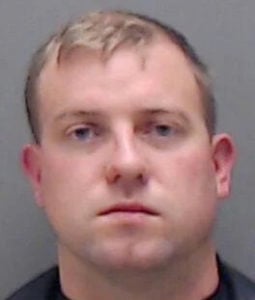
But Fellows tells me that all the time spent with Sixers in DC has actually been great for networking. His buddies inside call him “Elon,” owing to his idolization of tech evangelist Elon Musk and to the veggie-oil-powered bus he resides in back home (“I’ve been a tiny-houser since 2016”). He used to make his living by cleaning and repairing chimneys and caring for trees; when he gets out, he hopes to go storm-chasing with Ryan Nichols, a Texan who once went viral rescuing dogs during Hurricane Florence but who on January 6 was accused of pepper-spraying cops. (Nichols has pleaded not guilty.)
To hear the Sixers tell it, the gang has ups and downs with their predominantly Black guards. There was one, Fellows says, who provoked an argument with him when she apparently said she wished she were “the leader of BLM,” a desire he likens to “a white guard walking into an all-Black cell and saying, ‘Hey, I wish I were the leader of the KKK’ ”—quite a gripe coming from someone who took part in a protest that attracted actual white supremacists. He also feels a caseworker has been trying to provoke the Sixers by wearing a Kamala Harris shirt. (The jail would not respond to this statement. A spokesperson instead gave me a blanket statement in response to questions about alleged mistreatment: “The DC Department of Corrections is dedicated to providing a safe, orderly, and humane environment for the men and women in our care. We take these allegations very seriously, and will investigate the issues presented.”)
At the same time, though, Fellows believes there are guards who like being assigned to the MAGA crew, because “we actually work together as a unit—we don’t stab each other over honey buns.”
Although there is one sore point between the two camps: “They still tell us to put the masks on all the time. They’re screaming, ‘Put your masks on! Put your mask on!’ Besides that, that’s pretty much the only thing we ever argue about in here, like, is the masks.”
One night in early November, the Sixers got a wild surprise: an unannounced visit from Congress members Louie Gohmert and Marjorie Taylor Greene. The Trumpiest of Trump Republicans had been banging on the jail’s door for months, and now here they were on the Patriots’ Pod. “The second-best day of my life,” says Fellows. (The best? January 6.)
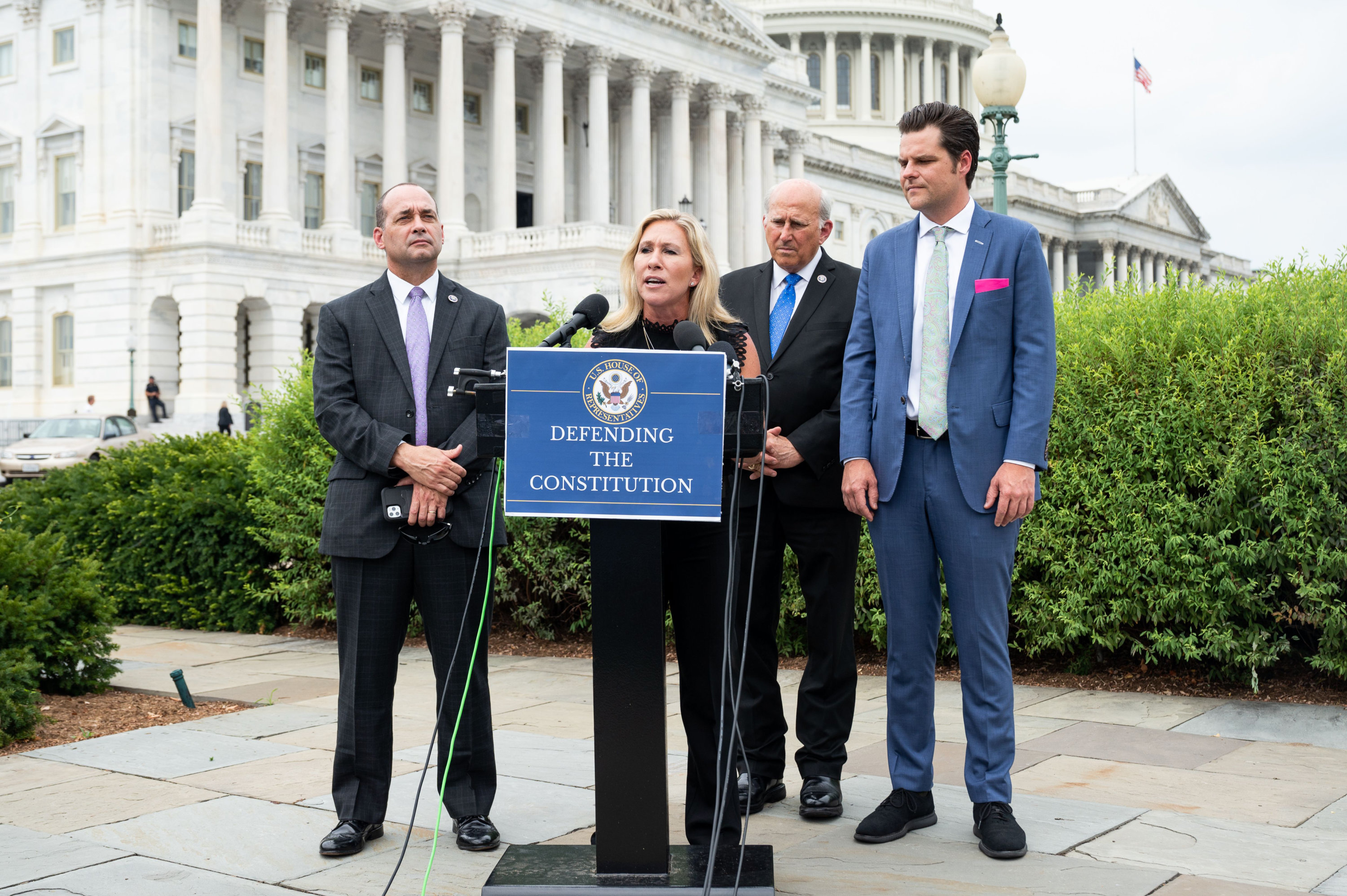
The lawmakers had tagged along with DC Council members on a tour of the main jail. They got access to Charlie Two Bravo only after much insisting and “a heated confrontation” with jail officials, as Greene put it in a report she released in December. They arrived at 8:55 pm, just in time for “The Star-Spangled Banner,” then listened to the Sixers’ complaints. “We got to show them our trays of food, of our moldy bologna,” Fellows says. “They were crying with us—like, a lot of us. I’d say half of us in here were crying.” At one point, one of the defendants passed a note for his father to a Greene staffer. Before the lawmakers left, Greene led everyone in prayer. Then, she says, everyone chanted, “USA! USA!” and the anti-Biden dig “Let’s go, Brandon!”
“They kept saying, ‘Hey, you guys aren’t forgotten,’ ” according to Fellows. “ ‘We’re going to make your situation known. Just hang in there.’ ”
There are many layers to The Situation. The fact of being locked up in the first place—targets of a political witch hunt, as they see it. The abominable living environment of the DC Jail—brown water from the taps, black mold on the walls. A “DC-GITMO,” as three attorneys who represent numerous Sixers called it in a letter to Amnesty International and the ACLU.
Naturally, the MAGAs have other complaints, too. The jail provides inmates with devices to look at evidence in their cases, but Dominic Pezzola—a Proud Boy from Rochester, New York—wanted his own laptop. (A judge denied the request.) According to a filing from his attorneys, Pezzola was also upset that Sixers “have to share the same fingernail/toenail cutter.” The Proud Boy is accused of ripping away a riot shield from a police officer and using it to break a Capitol window; he has pleaded not guilty.
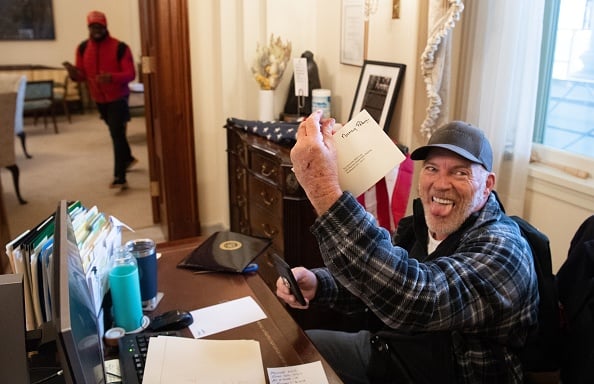
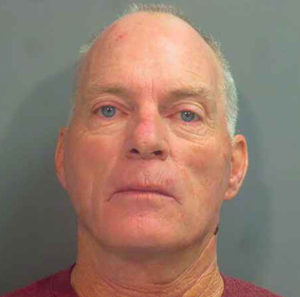
You may remember Richard “Bigo” Barnett, who was photographed with his boot on a desk in Nancy Pelosi’s office and who bragged on camera that he’d stolen her mail and left her a note calling her a bitch. Barnett, who has pleaded not guilty, spent 109 days at the jail, where his lawyer alleges a guard “made a sexually threatening comment . . . then called Richard’s wife by her first name and told Richard that he was going to get on a plane to Arkansas, where he would sexually assault her as well.” After Barnett filed a formal complaint, he says, he was placed in another part of the jail, whose inmates threatened him for three days, and then was sent to solitary confinement for weeks. Barnett’s lawyer also says his client had the opposite problem from his fellow Sixers when it came to guards and masks: He says that after Barnett asked a nearby officer to wear a mask, nine guards later threatened to mace him, lifted him off his feet, and threw him head-and-shoulder-first onto the floor. (This is among the allegations the jail says it is taking “very seriously” and investigating.)
Ryan Samsel—a Pennsylvania man with a long history of violence against women who is accused of assaulting cops near the Peace Monument and giving one a concussion (he has pleaded not guilty)—says that guards zip-tied his hands and beat him to the point where his jaw was broken and he couldn’t see out of one eye. The roughing-up, his lawyer said, was retaliation for griping that guards were taking too long to bring him toilet paper. After the incident, a judge had him moved to a lockup in central Virginia.
But the complaints that found the most purchase came from a 50-year-old Florida man named Christopher Worrell.
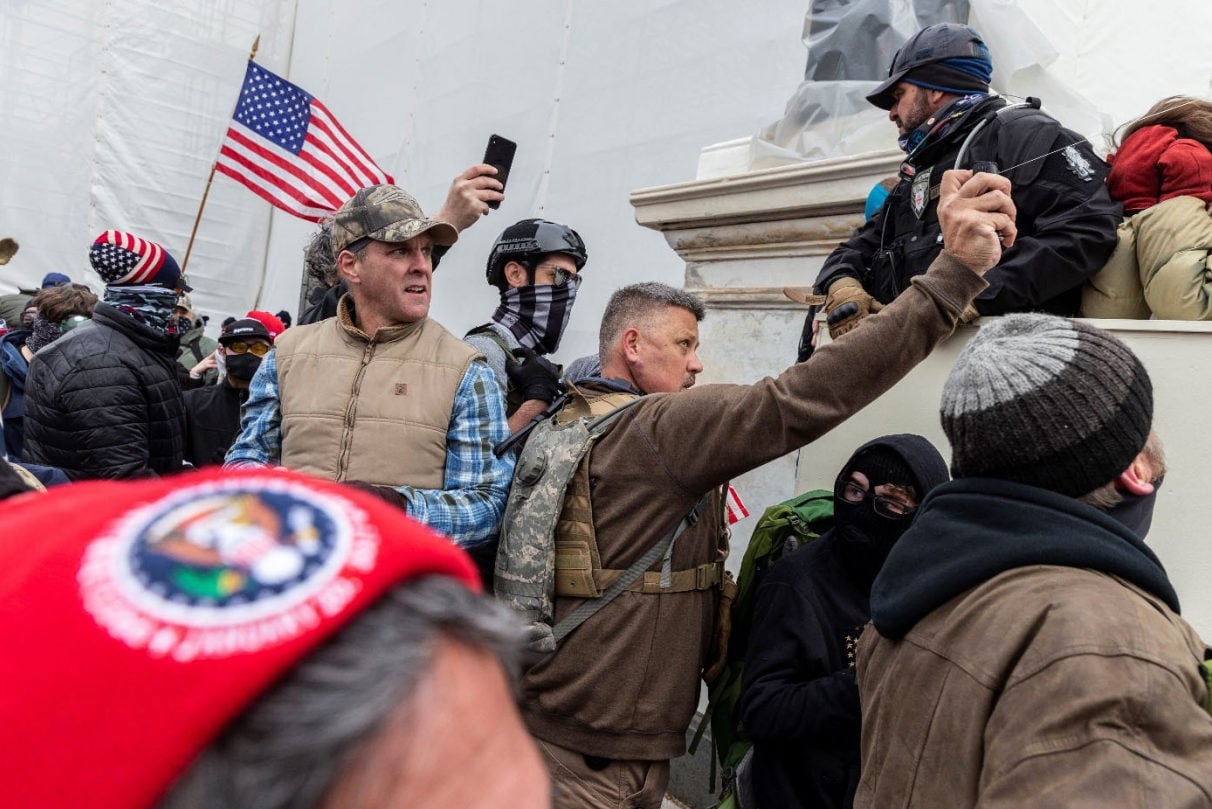
Worrell’s saga began last December, when he and fellow Proud Boys roamed the streets of DC vandalizing Black churches and looking for locals to fight. He returned for January 6, wearing a tactical vest with pepper-spray gel clipped to the front and an earpiece for a push-to-talk radio. (This appropriation of official-looking garb has a precedent: Worrell was convicted in 2009 for impersonating a police officer.) The government contends that Worrell accosted officers with his pepper spray just before rioters overpowered their line. (Worrell has pleaded not guilty; his lawyer has said he was aiming at people he “believed to be Antifa” nearby.) One of the officers on the other side of the barrier was Capitol Police officer Brian Sicknick, who later died.
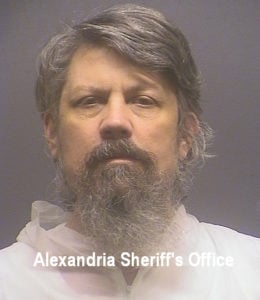
After his arrest, Worrell fought prosecutors’ bid to detain him, pointing out all the ways he was physically fragile. He had non-Hodgkin’s lymphoma and said he needed a prescription antifungal cream and pills that usually treat opioid withdrawal to continue his post-cancer care. These treatments could be furnished only through his doctor, who isn’t an oncologist or a dermatologist or an internist—he’s a Florida urologist named Bino Rucker. When the government wanted to substantiate the scripts, Dr. Rucker, who also practices alternative medicine, said he keeps no medical records. Ordered to remain in jail, Worrell then proceeded to bombard the court with other petitions—problems with his eyes, a tooth, his back and shoulders. In response, skeptical prosecutors noted that Worrell refused follow-up appointments.
The most consequential incident, though, involved a mishap with the bone that connects to his pinkie finger. In May, Worrell hurt his hand when he either blacked out and fell (per his former attorney) or tripped while exiting his cell (per the jail). He and the feds disagreed about the severity of the injury and whether it required surgery. So he was allowed to see a hand specialist. Procedure dictates that to have surgery approved, the corrections department was required to send that physician’s notes to the US Marshals Service. For reasons yet to be explained, jail officials failed so miserably at this picayune task that, after four months, Judge Lamberth found them in contempt. Was it intentional retaliation? Unintentional bureaucratic bungling? The judge wasn’t sure: “I find that the civil rights of the defendant have been abridged. I don’t know if this is because he is a January 6 defendant or not.”
After all that, Worrell and his injured mitt got a ticket home. Then, in a plot twist as bizarre as a shaman in Mike Pence’s chair, the Sixers proceeded to become accidental prison reformers.
For people who don’t spend their time marinating in far-right thought bubbles, views about the Sixers basically boil down to “play stupid games, win stupid prizes.” Jail isn’t supposed to feel like a Hilton, and the Stop-the-Stealers are no ordinary protesters: Their goal was to overturn an election. The deadly mayhem that ensued was one of the darkest days in American history. So, the logic goes, who cares if these clowns can’t get haircuts?
But to lawyers who have long track records with the District’s correctional operations, the Sixers’ grievances don’t have the ring of opportunism. They just sound like life in the city lockup. “Nothing about their treatment should be surprising to anyone who has followed conditions at the DC Jail, which are extremely troubling and, in our view, unconstitutional in a variety of respects for everyone,” says Scott Michelman, legal director of DC’s ACLU, which has sued the jail many times.
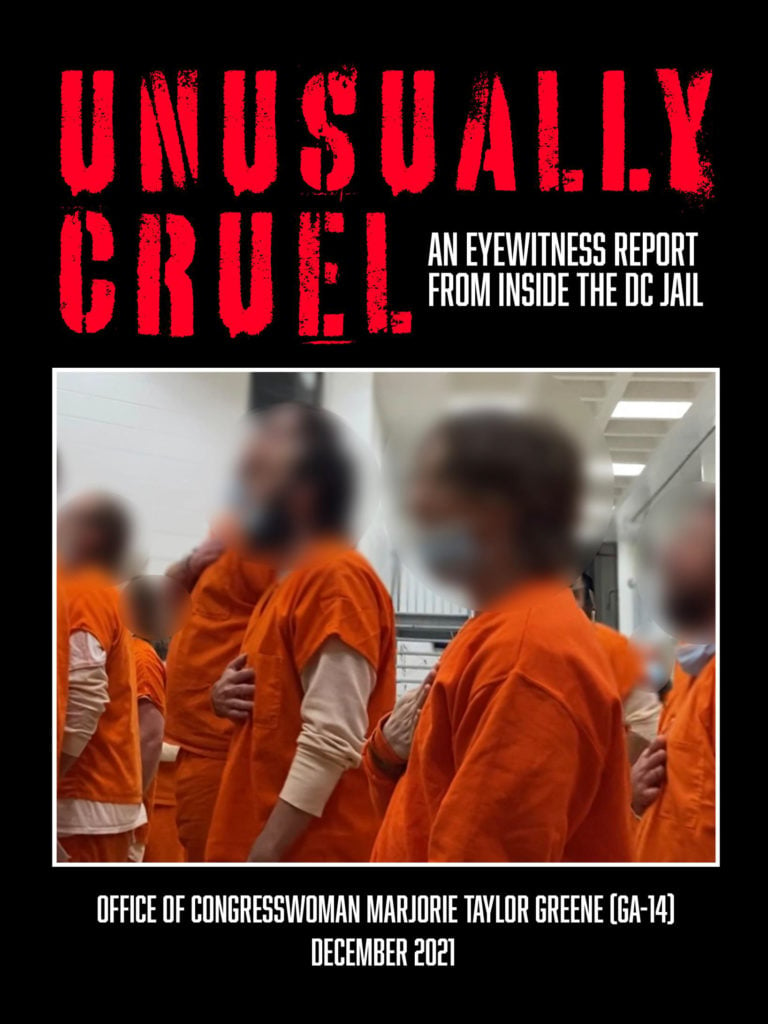
Nonetheless, it took a Florida man’s little-finger incident to make anyone care. Outraged over Christopher Worrell’s paperwork muck-up, Judge Lamberth directed the Justice Department to launch an investigation of the entire facility—an investigation that soon found “evidence of systemic failures,” including water and food being “withheld from detainees for punitive reasons,” “staff . . . antagonizing detainees,” and “large amounts of standing human sewage . . . in the toilets of multiple occupied cells.”
The revelations weren’t exactly revelatory. The jail has been a black hole of despair, inhumane-conditions lawsuits, and court-ordered supervision since it opened in the 1970s. As recently as 2019, the DC Auditor found that the city’s health department had often skipped inspections of the jail for years at a time. Inspections have since been more regular.
The dysfunction is now a rather convenient data point for anti-statehood Republicans in Congress, who’d already made the jail’s “political prisoners” a cause célèbre. And suddenly, after years of inaction, the city’s liberal lawmakers are taking an abrupt interest in the facility, too. This just might be related to the inconvenient fact that the likes of Gohmert and Greene have scored political points off the matter. “It is frustrating and discouraging,” Robert White, an at-large DC Council member, told me. The fact that white prisoners finally got a spotlight on the jail’s problems is “not at all lost on the people inside the jail. They know how long this has been going on. And they know why it’s getting attention now.”
The investigation, at least in one regard, had a spectacular effect. Some 400 federal inmates have been scheduled to be transferred to a prison in Pennsylvania, where conditions are better. No Sixer has a bus ticket north, though. The medium-security lockup, the acting US marshal for DC wrote, was deemed “largely appropriate and consistent with federal prisoner detention standards.” At least for now, the Patriots’ Pod is still there.
This article appears in the January 2022 issue of Washingtonian.
